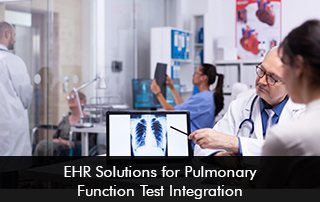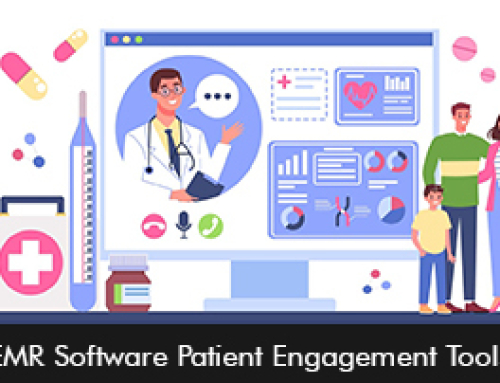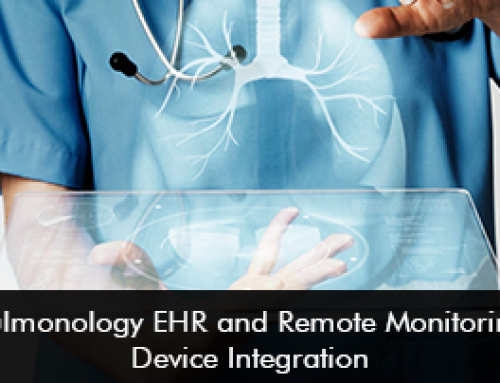Integrating PFT results into EHR systems allows seamless clinical workflows, better patient outcomes, and data-driven decision-making. In the evolving healthcare landscape, Electronic Health Records (EHR) and Electronic Medical Records (EMR) have revolutionized how medical data is recorded, accessed, and utilized. Their role is particularly significant in specialties such as pulmonology, where Pulmonary Function Tests (PFTs) play a vital role in diagnosing and managing respiratory conditions. In today’s era of digital healthcare, EHR systems are indispensable tools for pulmonologists and healthcare providers.
Importance of EHR Integration for Pulmonary Function Tests
Enhanced Workflow Efficiency
- Streamlines the documentation of PFT results directly into the patient’s records.
- Reduces the time spent on manual data entry, allowing clinicians to focus on patient care.
- Automates tasks such as generating follow-up recommendations or sharing results with referring physicians.
Improved Patient Outcomes
- Centralizes patient data, enabling a holistic view of a patient’s respiratory health.
- Facilitates timely diagnosis and treatment of conditions like asthma, COPD, and restrictive lung diseases.
- Allows healthcare providers to track trends and adjust treatments based on longitudinal data.
Regulatory Compliance and Interoperability
- Ensures compliance with healthcare regulations such as HIPAA.
- Promotes interoperability, allowing seamless sharing of PFT data across different healthcare facilities.
Data Analytics and Research
- Provides a rich database for research and population health management.
- Supports the identification of trends in pulmonary diseases, enhancing preventative care efforts.
Key Features of EHR Solutions for PFT Integration
Real-Time Data Sharing
- Integration with spirometry and plethysmography devices ensures instant transfer of PFT results.
- Enables real-time access for healthcare teams, improving diagnostic speed.
Customizable Templates
- Offers templates specifically designed for pulmonology and respiratory assessments.
- Ensures consistency and accuracy in documenting pulmonary function results.
Alerts and Notifications
- Sends reminders for follow-up PFTs or tests based on disease progression.
- Flags abnormal results, aiding in early intervention.
Compatibility with Diagnostic Equipment
- Seamlessly integrates with popular PFT machines and diagnostic tools.
- Facilitates direct data upload, eliminating errors associated with manual entry.
Top 5 EHR Software for Pulmonary Function Test Integration
-
Epic Systems
Epic is a widely recognized leader in the EHR industry, known for its powerful interoperability and customization options.
-
Features:
- Comprehensive pulmonology modules tailored for PFT data integration.
- Real-time data sharing across health systems.
- User-friendly interface that supports custom workflows and templates.
- Advanced analytics and population health tools for respiratory care.
-
Cerner PowerChart
Cerner is a top choice for hospitals seeking robust EHR systems.
-
Features
- Seamless integration with PFT diagnostic equipment.
- Patient-centric design that consolidates all clinical data in one place.
- Built-in clinical decision support tools for pulmonologists.
- Strong focus on interoperability and compliance with healthcare standards.
-
Allscripts Professional EHR
Allscripts is well-suited for practices focusing on patient engagement and comprehensive care.
-
Features:
- Pulmonology-specific templates for efficient documentation of PFT results.
- Strong analytics capabilities for monitoring patient outcomes.
- Scalable solutions for small practices and large hospitals alike.
- Enhanced patient portal for improved communication and engagement.
-
athenahealth
Known for its cloud-based technology, athenahealth is ideal for practices that value automation and connectivity.
-
Features:
- Real-time PFT data integration with diagnostic machines.
- Intuitive dashboards for tracking patient progress and outcomes.
- Automated reminders for patient follow-ups and tests.
- Continuous updates to ensure regulatory compliance.
-
NextGen Healthcare
NextGen is renowned for its tailored solutions for specialty practices, including pulmonology.
-
Features:
- Customizable templates designed for respiratory conditions.
- Efficient integration with spirometry and other diagnostic tools.
- Robust reporting tools for tracking trends in PFT data.
- Support for telehealth, enabling virtual consultations for respiratory follow-ups.
Integrating Pulmonary Function Test results into EHR systems is a game-changer for pulmonologists, enhancing both clinical workflows and patient outcomes. Solutions like Epic Systems, Cerner PowerChart, and others offer powerful tools that streamline data management, improve interoperability, and enable advanced analytics. With such robust capabilities, these EHR platforms empower healthcare providers to deliver top-tier respiratory care in today’s digital age.







